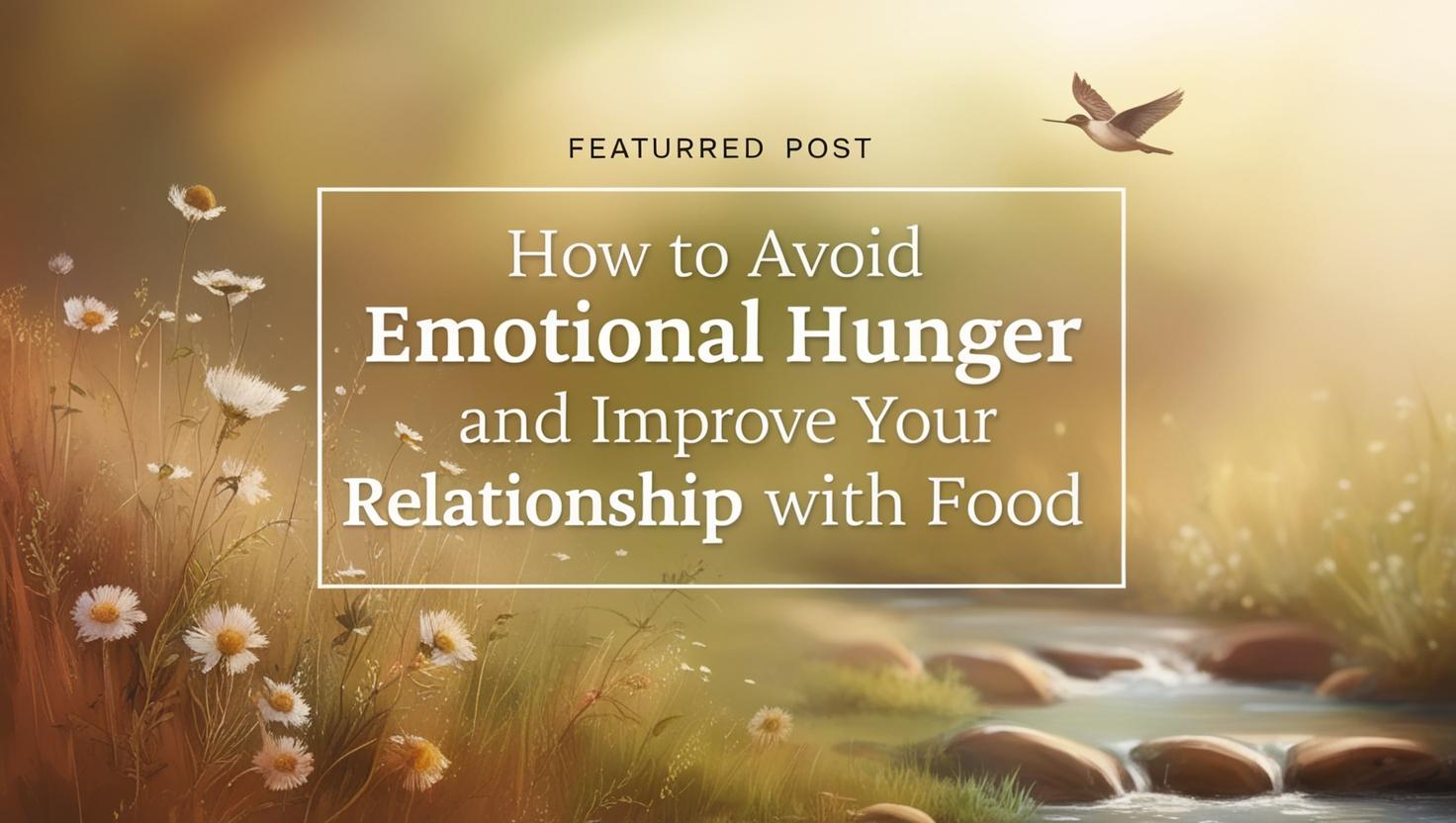Meta Description: Discover how to overcome emotional hunger, make healthier choices, and develop a positive relationship with food.
Introduction
Have you ever found yourself reaching for snacks, not because you’re physically hungry, but because you’re stressed, anxious, or even bored? This is what we call emotional hunger, a common challenge that affects millions of people worldwide. Unlike real hunger, which comes gradually and is satisfied by nutritious meals, emotional hunger strikes suddenly and often leads to overeating foods that provide temporary comfort but long-term regret.
Understanding the difference between emotional and physical hunger is crucial for maintaining a healthy relationship with food. When emotions drive our eating habits, it can lead to weight gain, low energy levels, and even mental health struggles. But the good news is that emotional eating is not an unbreakable habit—it can be managed with the right strategies. Let’s explore how you can take control of your eating habits and improve your overall well-being.
What Is Emotional Hunger?
Emotional hunger is the urge to eat triggered by emotions rather than actual physical need. It often stems from stress, boredom, sadness, or even happiness. Unlike physical hunger, which develops gradually, emotional hunger comes on suddenly and creates cravings for specific comfort foods, usually high in sugar, fat, and calories.
Some common signs of emotional hunger include:
- Eating even when you are full
- Craving specific unhealthy foods
- Feeling guilty after eating
- Using food as a distraction from emotions
How Emotional Eating Impacts Your Health
Constantly giving in to emotional hunger can lead to a cycle of guilt, frustration, and poor health. Over time, this can contribute to:
- Weight gain and increased body fat
- Higher risk of chronic diseases, such as diabetes and heart disease
- Digestive issues due to overeating unhealthy foods
- Mental health struggles, including anxiety and depression
Recognizing emotional eating patterns is the first step toward breaking free from this cycle and improving your relationship with food.
Practical Strategies to Overcome Emotional Hunger
1. Identify Your Emotional Triggers
Before you can change your habits, you need to understand what drives them. Keep a journal of your eating habits, noting what you eat, when you eat, and how you feel at that moment. Over time, patterns will emerge, helping you pinpoint emotional triggers.
2. Develop Mindful Eating Habits
Mindful eating helps you tune into your body’s hunger cues and distinguish between real hunger and emotional cravings. To practice mindful eating:
- Eat slowly and without distractions
- Focus on the taste, texture, and aroma of your food
- Stop eating when you feel satisfied, not stuffed
3. Find Healthy Alternatives to Emotional Eating
Instead of turning to food, try other activities that bring you comfort and relaxation:
- Go for a walk or do light exercises
- Practice deep breathing or meditation
- Engage in a hobby or creative activity
- Connect with friends or family
4. Keep Nutritious Snacks on Hand
If you feel the need to snack, opt for healthy choices like fruits, nuts, yogurt, or whole grains. These foods provide essential nutrients and keep you full for longer, reducing the chances of emotional binge eating.
5. Reduce Stress and Improve Emotional Well-being
Managing stress effectively can prevent emotional hunger from taking control. Some effective stress-relief techniques include:
- Regular exercise
- Practicing gratitude and positive affirmations
- Getting enough sleep
- Seeking professional support if needed
Conclusion
Overcoming emotional hunger and creating a healthy relationship with food is a journey that requires awareness, patience, and commitment. By understanding your emotional triggers, practicing mindful eating, and finding healthier coping mechanisms, you can regain control over your eating habits and overall well-being.
Remember, food should nourish your body, not serve as a coping mechanism for emotions. Start making small changes today, and you’ll soon notice a positive transformation in your eating habits and overall health.
Are you ready to break free from emotional eating and build a healthier lifestyle? Start implementing these tips today and take control of your well-being!
